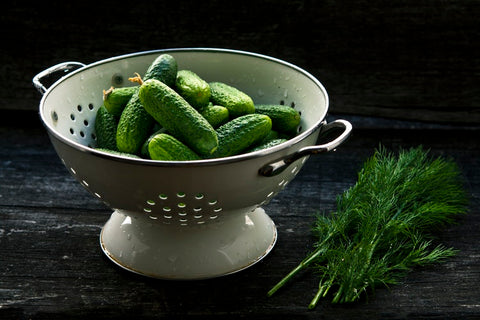As Hippocrates once stated, “All disease begins in the gut”. This statement might be 2000 years old but it is undeniably true.
Keeping a better understanding of your digestive system is a lot worth it than you expected. In their Maay 2014 issue of Life Extension Magazine, an article for probiotics was created.
There, they cited that imbalance of probiotics in the colon caused not only cancer but other aging diseases.
Did you know that unhealthy digestion is evident in other conditions like throat and nose problems, bloating, inflammation, skin disorders, food reactions, diarrhea, and constipation?
While on the other hand, healthy digestion will make you less tired and comfortable throughout your day.
So what are probiotics?
Probiotics are live microorganism that is good for your tummy. They are usually bacteria and are often called “good” or “helpful” bacteria but they could also be yeast.
Our gut is home for approximately 100 trillion microorganisms. They promote normal GI functions and provide protection from infection and regulates metabolism.
Impairment of gut flora has been linked to autism and depression to other autoimmune conditions, inflammatory bowel disease (IBD), and type 1 diabetes.
How can you add more probiotics to your diet?
Probiotic-rich foods are not cooked, they are prepared by putting them in a slow cooker or a jar or letting their bacteria ferment them naturally.
Fermented food does not only provide fiber for our gut’s flora but also fresh shipment of transient bacteria. Here are some foods that are loaded with probiotics:
Kefir

Like yogurt, kefir is a cultured milk product, but it contains different types of beneficial bacteria.
According to nutrition guru Dr. Mercola, yogurt helps to keep your digestive system clean and provides food for the friendly bacteria that are already present, but kefir goes above and beyond by helping to “colonize” or populate your intestinal system.
Kefir also contains several major probiotic strains not found in yogurt and it has beneficial yeasts (yes, there are actually “good” yeasts) that help to balance your intestinal flora.
Now So Delicious has released a coconut milk kefir that is not only dairy-free, but also vegan, soy-free, and certified gluten-free!
Healthy Tip: Keep your kefir cold—the live and active cultures are sensitive to heat—and be sure to avoid kefir with sky-high sugar content. Too much sugar damages your healthy intestinal flora.
Miso Soup

Miso soup is made from fermented rye, beans, rice or barley and a tablespoon of miso.
Fermented soybeans contain an abundance of beneficial bacteria and isoflavones, which can protect against cancer and possibly halt the production of fat cells.
Healthy Tip: Look for organic miso soup to avoid harmful additives and genetically engineered soy, which has never been tested for long-term impact on human health.
Sauerkraut

Sauerkraut is made from fermenting cabbage with some vegetables is not only packed with probiotics but also rich in vitamins A, B, E, and C.
Healthy Tip: For true probiotic muscle, avoid canned sauerkraut, because it’s pasteurized, meaning the healthy bacteria is mostly killed off. Instead, make your own homemade sauerkraut in a crock.
Kombucha

It is a lightly effervescent fermented drink of sweetened black and/or green tea that is used as a functional food.
It is slightly tangy and slightly sweet, and a great treat on a summer day. It is also known for increasing energy after consumed although not fit for people with candida problems.
Healthy Tip: This ancient, nourishing tonic has boosted immune systems for centuries; however, if you have certain digestive-tract diseases or candida, kombucha may aggravate symptoms because it’s considered a wild ferment and could contain irritating yeasts for susceptible individuals.
Pickles

Also known as a pickled cucumber is packed with probiotics. The less commercialized the better, but most pickles will have some microbial value.
Tempeh

It is a traditional soy product originally from Indonesia. It is made by a natural culturing and controlled fermentation process that binds soybeans into a cake form. A great source of vitamin B12, this vegetarian food can be sautéed, baked, or eaten crumbled on salads.
Kimchi

An Asian form of pickled sauerkraut, kimchi is an extremely spicy and sour fermented cabbage, typically served alongside meals in Korea.
Besides beneficial bacteria, Kimchi is also a great source of beta-carotene, calcium, iron and vitamins A, C, B1 and B2.
Kimchi is one of the best probiotic foods you can add to your diet, assuming you can handle the spice, of course.
If these options get tough with a busy lifestyle, you can always get probiotics pills. For my kids, we use a dissolvable version from Culturelle


